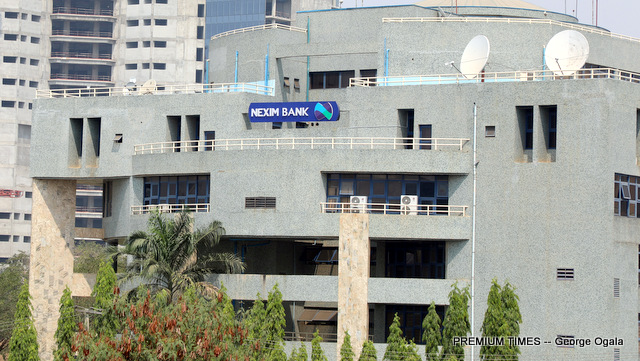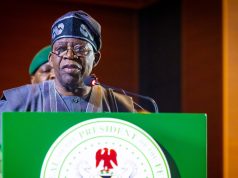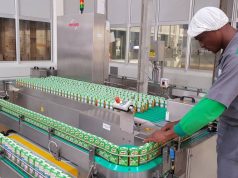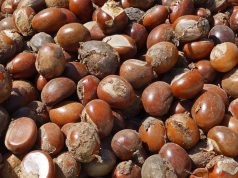The Nigeria Export-Import Bank (NEXIM) has disbursed more than N420 billion to support non-oil exporters, an official has said.
The bank’s Managing Director, Abubakar Bello, said the move has generated about 12,000 direct jobs and thousands more along the value chain.
He disclosed the figures Tuesday at a forum organised by the youth wing of the ruling All Progressives Congress (APC) in Abuja.
PREMIUM TIMES could not independently confirm the figures as of press time Tuesday afternoon.
Mr Bello said the financing was provided through several intervention schemes, including the Export Development Facility (EDF), which grants loans to small and medium-sized exporters at single-digit interest rates.
“Export Development Fund (EDF) financing is a N150 billion debenture from CBN to the Nigerian Export-Import Bank (NEXIM), with the objective of stimulating the non-oil export sector. It’s a revolving loan. N137 billion has been released to NEXIM bank. We have disbursed over N420 billion, which is close to NEXIM Bank’s total assets. The number of direct jobs created is in the region of 12,000. This is outside of the indirect jobs created along the value chain through our plants’ financing,” Mr Bello said.
He stressed that young Nigerians must be central to the economy if the federal government’s ambition of achieving a $1 trillion gross domestic product by 2030 is to be realised.
“The youth constitute 70 percent of Nigeria’s population. If youths are not in the centre of production, the $1 trillion economy will be a mirage,” the MD said.
Mr Bello added that the bank gives priority to women and young entrepreneurs in its lending programmes and has eased collateral requirements to encourage more participation. He also emphasised NEXIM’s policy of promoting value addition in non-oil exports to strengthen foreign exchange earnings.
“At NEXIM, we do not only facilitate and fund non-oil exports; we make sure the export gets value addition by ensuring we don’t export the raw materials but ensuring the export gets value addition to earn the country needed foreign exchange income. The value of non-oil exports has been on the rise since 2017 because of NEXIM Bank’s deliberate policy of value-addition infusion in all exported products,” he said.
Nigeria remains dependent on crude oil for most of its foreign exchange, but authorities have pushed to diversify the economy as global oil demand shifts and local currency shortages worsen. Non-oil exports and processed agricultural products are increasingly seen as growth drivers.
READ ALSO: Tinubu celebrates VP Shettima at 59
APC National Youth Leader, Dayo Israel, who convened the Abuja forum, said the event was aimed at encouraging young Nigerians to take advantage of opportunities in the export sector.
“The diversification of the economy from oil to the non-oil export by the current administration is deliberate. It comes with immense opportunities in terms of job creation, which our youths can engage in. The growth in the non-oil export GDP this year tells us the diversification effort is working. Nigerian youths have demonstrated zeal to take advantage of the opportunity created by the renewed hope agenda,” he said.









